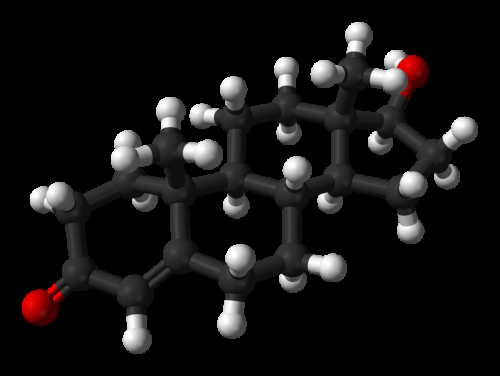September 27, 2016 report
Testosterone found to increase both social and antisocial behavior in men

(Medical Xpress)—A team of researchers with members from Europe and the U.S. has found increased levels of testosterone can cause a man to engage in both social and antisocial behaviors. In their paper published in Proceedings of the National Academy of Sciences, the group describes a game they had volunteers play while injected with testosterone, what they witnessed and what they believe it means for male behavior in general.
Modern society has taken a less-than-positive view of testosterone, blaming it for aggressive, boorish or simply bad behavior in men—but there may be more to the impact the steroid hormone has on men than has been suspected. In this new effort, the researchers concocted a game called the Ultimatum Game, which involved a pot of money that was spilt and shared with the aim of maximizing the amount participants would get in the end.
The experiment enlisted the assistance of 40 male volunteers—half were given an injection of testosterone while the other half were given a placebo. The men where then asked to play the Ultimatum Game in two ways—one group played by responding to predetermined proposals, while another group played in pairs against one another. In both versions, volunteers were presented with a proposal of accepting money from a split pot of cash. If they accepted the cash, they got to keep it; if not, the other person did not get to keep their share, either. Afterwards, the volunteers were allowed to reward or punish their opponents for being fair or not by using their own winnings to reduce or increase the amount their opponent got.
By watching and comparing player behavior of those that had received the testosterone shots versus the placebo, the researchers found that those that received the shots tended to be more likely to reject proposals and to punish opponents they found unfair—which was expected behavior. But surprisingly, those operating on heightened levels of testosterone were also found to be more generous with opponents they deemed fair. The researchers suggest this form of ultraism was likely due to what they described as a "status display"—a move meant to make the player seem more impressive to their peers.
More information: Jean-Claude Dreher et al. Testosterone causes both prosocial and antisocial status-enhancing behaviors in human males, Proceedings of the National Academy of Sciences (2016). DOI: 10.1073/pnas.1608085113
Abstract
Although popular discussion of testosterone's influence on males often centers on aggression and antisocial behavior, contemporary theorists have proposed that it instead enhances behaviors involved in obtaining and maintaining a high social status. Two central distinguishing but untested predictions of this theory are that testosterone selectively increases status-relevant aggressive behaviors, such as responses to provocation, but that it also promotes nonaggressive behaviors, such as generosity toward others, when they are appropriate for increasing status. Here, we tested these hypotheses in healthy young males by injecting testosterone enanthate or a placebo in a double-blind, between-subjects, randomized design (n = 40). Participants played a version of the Ultimatum Game that was modified so that, having accepted or rejected an offer from the proposer, participants then had the opportunity to punish or reward the proposer at a proportionate cost to themselves. We found that participants treated with testosterone were more likely to punish the proposer and that higher testosterone levels were specifically associated with increased punishment of proposers who made unfair offers, indicating that testosterone indeed potentiates aggressive responses to provocation. Furthermore, when participants administered testosterone received large offers, they were more likely to reward the proposer and also chose rewards of greater magnitude. This increased generosity in the absence of provocation indicates that testosterone can also cause prosocial behaviors that are appropriate for increasing status. These findings are inconsistent with a simple relationship between testosterone and aggression and provide causal evidence for a more complex role for testosterone in driving status-enhancing behaviors in males.
© 2016 Medical Xpress
















